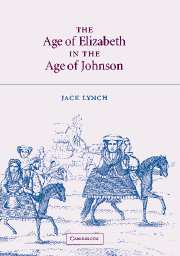Book contents
- Frontmatter
- Contents
- Preface
- Note on the texts and citation
- List of abbreviations
- Introduction
- 1 Struggling to emerge from barbarity: historiography and the idea of the classic
- 2 Learning's triumph: historicism and the spirit of the age
- 3 Call Britannia's glories back to view: Tudor history and Hanoverian historians
- 4 The rage of Reformation: religious controversy and political stability
- 5 The ground-work of stile: language and national identity
- 6 Studied barbarity: Jonson, Spenser, and the idea of progress
- 7 The last age: Renaissance lost
- Notes
- Bibliography
- Index
1 - Struggling to emerge from barbarity: historiography and the idea of the classic
Published online by Cambridge University Press: 22 September 2009
- Frontmatter
- Contents
- Preface
- Note on the texts and citation
- List of abbreviations
- Introduction
- 1 Struggling to emerge from barbarity: historiography and the idea of the classic
- 2 Learning's triumph: historicism and the spirit of the age
- 3 Call Britannia's glories back to view: Tudor history and Hanoverian historians
- 4 The rage of Reformation: religious controversy and political stability
- 5 The ground-work of stile: language and national identity
- 6 Studied barbarity: Jonson, Spenser, and the idea of progress
- 7 The last age: Renaissance lost
- Notes
- Bibliography
- Index
Summary
In a children's logic puzzle, an archaeologist discovers a Greek coin inscribed “413 b.c.” and at once rejects it as fraudulent. The trick, of course, is that Plato's contemporaries could not date themselves “before Christ.” Behind the puzzle lies a salutary reminder about periodization: few ages get to choose how the future will regard or name them. Because periods depend upon teleologies imposed in retrospect, antiquity could not conceive of itself as antique, and the Middle Ages could not view themselves as being in the middle of anything.
But the Renaissance is different. A group of Florentine scholars writing in the late fourteenth and early fifteenth centuries seem to have willed their age into being in their own polemical act of periodization – “The legend of the Renaissance,” writes C. S. Lewis, “is a Renaissance legend” – and their self-constitution set the terms for subsequent efforts at periodizing the epoch. By distinguishing their own age from the ostensibly barbarous one before them, and by defining themselves in relation to their past, they created both the last age and their own, both the Middle Ages and the Renaissance. Theirs is the West's first self-conscious declaration of modernity. Half a millennium later, the humanists' account still dominates our historiography, after Michelet, after Burckhardt, even after modern critics have challenged the validity of their most basic claims to accuracy and originality.
- Type
- Chapter
- Information
- The Age of Elizabeth in the Age of Johnson , pp. 18 - 37Publisher: Cambridge University PressPrint publication year: 2002

